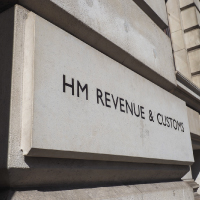
Recommended contact person
The LLC
The most common form of a business vehicle used by foreign investors, is an onshore limited liability company (LLC). LLCs provide for limited liability of their shareholders and the ability to trade in the UAE (outside the free zone areas). An entity established in one of the free zones of the UAE cannot carry on business outside the free zone area in the UAE. Other common forms of business vehicles include establishing branches of a foreign company and the incorporation of companies in free zones.
An LLC is formed by a memorandum of association entered into by the shareholders of the LLC. Each emirate of the UAE has its own licensing authority. An LLC must be licensed by the relevant emirate level authority. Once all necessary documentation is in order, the registration and licensing process takes approximately ten working days. However, it can take longer if the license requires the approval of an additional regulatory body (for example, additional approvals from the Dubai Municipality are required to license a contracting company). Some licensing authorities provide for naming requirements (for example, the name of the company cannot include the name of a country or government, and must strictly reflect the business activity).
An LLC must keep a record of the names, nationalities, date of birth and domiciles of all shareholders and their respective share values, at the LLC’s headquarters. An LLC must also maintain financial records, which must be audited by a licensed auditor. The audited financial statements are not currently required to be filed with any authority. An LLC must annually renew its license and registration with the local authorities.
The UAE has recently passed and implemented Economic Substance Regulations (Regulations), which are applicable to all licensed entities conducting “relevant activities”. The relevant activities are:
- Banking business;
- Insurance business;
- Investment fund management business;
- Lease-finance business;
- Headquarters business;
- Shipping business;
- Holding company business;
- Intellectual property business;
- Distribution and service centre business.
Entities which do not conduct relevant activities, fall outside the scope of the Regulations. If an entity earns any income from one or more relevant activities during its financial year, it must meet the requirements under the Regulations, and it must file with the Ministry of Finance:
- An annual notification within six months of the end of the relevant financial period;
- An economic substance report filed within 12 months of the end of the relevant financial period.
A notification must still be submitted to the Ministry of Finance by an entity conducting a relevant activity, even if it did not earn any income from the relevant activity.
An LLC (and all other types of entities) must file details of its ultimate beneficial owners with the licensing authority. Any change in the details of an ultimate beneficial owner is required to be notified to the licensing authority. An LLC cannot issue transferable shares or bonds, or resort to public subscriptions (these activities are reserved for public joint stock companies). The Companies Law sets out the rights and restrictions on shares of an LLC.
A foreign company can establish its presence in the UAE by setting up a branch or forming a company. A branch or company must obtain a license from the federal and/or emirate level authorities to carry on its proposed activities. Certain industries, such as banking, insurance and investment, are subject to additional regulation.
In the past, the branch of a foreign company was required to appoint a UAE national agent. Such national agents had no ownership rights in the branch. Under the new Companies Law a branch of a foreign company is no longer required to have a UAE national sponsor. However, depending on the nature of the business activity, an authority that regulates the activity (other than the licensing authority) may still require the appointment of a UAE national sponsor (such as in the oil and gas sector).
Federal Law By Decree No. 32 of 2021 on the Commercial Companies (Companies Law) came into force on January 2nd 2022. It replaced the Federal Law No. 2 of 2015 on Commercial Companies. The Companies Law is applicable to all entities established in the UAE outside of the free zone areas. The Companies Law (among other things) solidifies the concepts of foreign ownership of companies, corporate governance and minority protection. The Companies Law also introduces special purpose acquisition companies and special purpose vehicles.
FREE ZONE COMPANIES
The UAE has more than 40 free zones, including the:
- Jebel Ali Free Zone;
- Dubai Multi Commodities Centre;
- Dubai Airport Free Zone;
- Dubai South;
- The DIFC.
In general, the free zones focus on different business areas (including shipping, commodities, media, financial services and telecommunications) and have their own regulators. Operations within a free zone can be 100% foreign-owned, and no UAE national agent or UAE partner or shareholder is required. Free zone companies are allowed to do business within the jurisdiction of the particular free zone and outside the UAE.
The UAE has established various free zones, of which each one is regulated by the relevant free zone authority. Free zones are generally subject to their own company laws, independent of the company law of the UAE. Foreign companies can establish branches or incorporate wholly-owned subsidiaries in the free zones, without the need to appoint a UAE national sponsor or have any UAE national ownership.
Free zones distinguish themselves by appealing to a particular type of business and offering an environment attractive to those businesses in terms of infrastructure, location and other factors, such as guaranteed tax holidays. Even outside the free zones, currently there is no corporate or personal income tax (except on foreign banks and courier companies operating in the UAE) but note the following.
TAXATION
The UAE Ministry of Finance announced on January 31st 2022 the introduction of corporate taxation (commencing from June 2023). Although the law is yet to be promulgated, certain details have been announced. The UAE corporate tax is a federal tax, and will therefore apply across all Emirates, with the Federal Tax Authority responsible for administration of the UAE corporate tax regime. One corporate tax return will need to be filed electronically per financial period (generally one year). There will be no provisional or advance corporate tax filings, nor any requirement to make advance corporate tax payments (that is, no tax instalment regime).
The taxable income will be the accounting net profit of a business, after making adjustments for certain items to be specified under the UAE Corporate Tax Law. The accounting net profit of a business will be the amount reported in the financial statements in accordance with internationally acceptable accounting standards.
The corporate tax rates to be levied are:
- 0% for taxable income up to AED375,000;
- 9% for taxable income above AED375,000;
- 15% for multinationals that meet certain criteria.
The UAE corporate tax will commence for financial years starting on or after June 1st 2023. The UAE corporate tax will apply to businesses which operate as corporate entities or as sole proprietorships. Many details pertaining to the UAE corporate tax regime currently remain unknown. Once promulgated, the UAE Corporate Tax Law will provide the operational details and guidance required. It should be carefully noted the UAE is party to more than 100 international tax treaties.
Start your Company in the UAE – submit your enquiry Corporate Services UAE or receive expert advice from our team of professionals by contacting us on uae@agplaw.com
The information provided by A.G. Paphitis & Co. LLC is for general informational purposes only and should not be construed as professional or formal legal advice. You should not act or refrain from acting based on any information provided above without obtaining legal or other professional advice.















